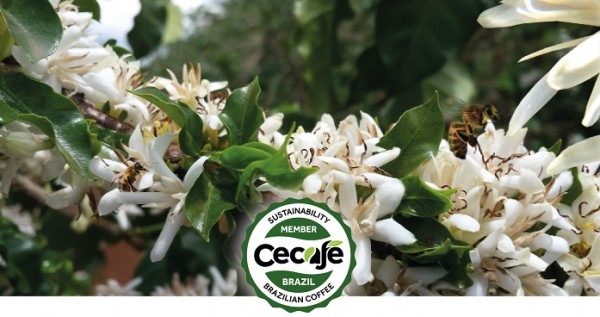
Brazilian coffee crops development is directly related to research and extension work, concentrated in genetic improvement, biotechnology, food safety, good practices and productive system optimization, integrated handling of pests and diseases, irrigated coffee crops, climatic zoning, harvest and post-harvest care, process improvements and machines and equipment development.
During 2017, Cecafe supported Centro de Desenvolvimento Tecnológico do Café – CETCAF (Coffee Technology Development Center), a non-profit non-governmental organization, which since its foundation has been an important link between the various segments of coffee agribusiness, congregating efforts, initiatives and activities which have given the industry a new institutional dynamic, with effective practical results for the involved segments.
With the strategic guidelines “Quality and Productivity”, CETCAF has been promoting coffee production development in the state of Espírito Santo, covering technological aspects, productivity, producers’ quality of life, and sustainability for individuals of the coffee chain.
CETCAF actions resulted in technological improvements for the Espírito Santo coffee infrastructure, interacting with all segments of the coffee agribusiness chain, and inserting the State of Espírito Santo as a reference for coffee quality in Brazil and abroad. As an example, through partnerships with Incaper – Instituto Capixaba de Pesquisa, Assistência Técnica e Extensão Rural (Espírito Santo Research, Technical Assistance and Rural Extension Institute), CCCV – Centro de Comércio de Café de Vitória (Vitória Coffee Trade Center), and other entities, a work agenda is being developed to establish a quality standard for conilon coffee, through good practices, harvests performed at the right ripening time and drying in yard-greenhouses or indirectly-fired dryers.
To reach those common objectives, technical and financial cooperation between Cecafe and CETCAF is of extreme importance, since the entities are moving towards joining competencies and experiences to the benefit of coffee production, including training those involved in the activity, developing and disseminating new technologies, integrating entities, holding technical events and structuring approaches to meet private and public interest.
As a result of the abovementioned reasons, in a meeting held in the beginning of December 2017, the Cecafe’s Decision-Making Council members unanimously approved to continue supporting the CETCAF during 2018.
The new project proposed by Cecafe is called “Performance Indicators of the Coffee Export Sector (IDEXCafe)” and aims at contributing significantly to monitoring, analyzing the evolution, improving strategies and promoting various Social Responsibility and Sustainability actions. Accordingly, the INDEXCafe results will be forwarded for publication in the Brazilian Coffee Export Trade Sustainability Report.
From 2018 onwards, the compilation of information of Cecafe Institutional Programs, such as Coffee’s Child at School Project, Café Seguro, Digital Coffee Farmer Program, as well as the actions already individually developed by the Cecafe member companies and organizations, and by partners, such as CETCAF, will provide inputs for decision-making, in addition to being an important tool for the commercial promotion of Brazilian Coffees.
Through partners’ integration and efforts of all coffee production segments they place Brazil in the right path to ensure competitivity, sustainability and leadership in coffee global trade, when Brazil prepares itself to continue meeting the requests of the most diverse and demanding markets, mainly regarding coffee quality and sustainability.
Marcos Matos – Chief Executive – CECAFÉ
Marjorie Miranda – Coordinator of Social Responsibility and Sustainability Projects – CECAFÉ


Leave A Comment